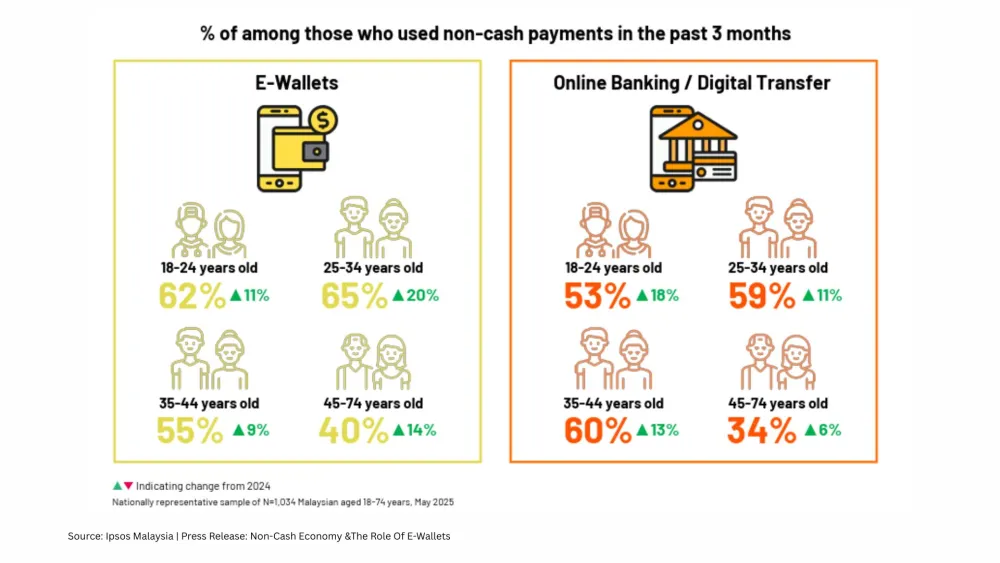
Banks see sharp drop in cheque use ahead of 2027 phaseout
More people are using e-payment solutions such as PayNow and FAST.
Singapore’s banks are reporting a steep decline in cheque use as the country moves toward ending physical cheque payments by 2027, with businesses and consumers shifting to digital alternatives.
Cheque transactions have fallen steadily in recent years, a trend that Maybank Singapore attributed to fees imposed on cheque usage and the growing reliance on real-time payment systems.
“This decline has been driven by both the introduction of fees for cheque usage, as well as the growing adoption of convenient e-payment solutions such as PayNow and FAST, which many of our customers now rely on for day-to-day transactions,” Helena Ooi, head of strategy at Maybank Singapore, said in an emailed reply to questions.
At United Overseas Bank Ltd., the number of both corporate and retail cheques processed dropped 30% from a year earlier.
“Payrolls and accounting were amongst the top three digitalised processes for business this year,” Kwan Chee Sun, managing director of group wholesale banking and global market technology and operations at UOB, told Singapore Business Review.
UOB’s Business Outlook Study 2025 found that about eight in 10 companies have adopted digital tools, whilst consumer surveys show increased use of mobile banking and QR payments. More than 75% of digital payment users relied on these options at least once a week.
For wholesale clients, transaction volumes through PayNow, FAST and GIRO rose 10% in the first half from a year earlier. Retail customer usage of digital payments climbed 25%.
DBS Bank Limited highlighted e-payments’ transparency, which it said offers enhanced trust, security, efficiency, and convenience over physical cheques. This includes real-time alerts and full traceability.
“With e-payment modes, the reconciliation process is fully digital, enabling greater accuracy in record-keeping. There is less manual paperwork and having to keep track of whether a cheque has been deposited or not,” said Alan Hwong, Singapore head of cash management product, global transaction services, DBS.
The decline in cheque volumes comes as the government enforces a phased withdrawal. Banks must stop issuing corporate cheque books and halt bulk cheque and self-printing services by January 2026. All Singapore dollar corporate cheque processing will end a year later.
To fill the gap, the Association of Banks in Singapore (ABS) introduced two electronic deferred payment systems in July. The platforms—Electronic Deferred Payment (EDP) and EDP+—are designed to replace post-dated cheques used for supplier and rental payments.
Under EDP, funds are deducted from the payer’s account only when the payee requests settlement, whilst EDP+ locks the funds immediately, ensuring they can’t be used for other transactions. The tools were developed in consultation with the Monetary Authority of Singapore and local banks.
“With the planned discontinuation of cheques, there is a need for digital solutions that offer similar functionality,” ABS said in a statement. “Electronic Deferred Payment solutions were developed specifically to address this gap,” it added, noting that real-time notifications give users visibility that cheques could not provide.
UOB said there has been strong initial demand for the products from both retail and corporate customers. Kwan said the systems could be used for a range of payments, including supplier transactions, deposits for project tenders, and property-related payments such as rental or ballot deposits.
Maybank reported “moderate but steady” adoption so far. Ooi said the solutions are useful for small firms that no longer need to print, deposit or manually track cheques. For property transactions, she said EDP+ provides the security of a cashier’s order without requiring a branch visit.
The banks are also working to guide long-time cheque users through the shift. Maybank has issued step-by-step guides, digital outreach, and support from relationship managers to help businesses adjust.
“Early adopters have shared that they value the time saved by not having to print or deposit cheques, and the convenience of managing payments entirely online with real-time updates,” Ooi said.
To ensure safety, banks have adopted a range of defences. DBS requires multi-factor authentication as well as maker-checker processes before performing online transactions.
“We also have a dedicated anti-scam team to monitor, intervene in and review fraud alerts. The team includes full-time personnel stationed at the Singapore Police Force’s anti-scam centre to ensure timely freezing of any suspicious or compromised accounts,” Hwong said.
DBS also has transaction screening using advanced monitoring and surveillance systems. This helps the bank detect unauthorised activities on customer accounts.
“This allows us to detect distinct changes in user behavioural patterns, cross-reference unusual account changes, as well as screen unusual transfers and block flagged transfers,” Hwong said.



















 Advertise
Advertise














